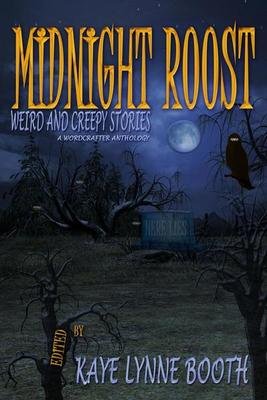I asked fellow Midnight Roost anthology contributors to share some things about themselves prior to publication and those generous enough to do so will be appearing here for the next week or so.
 Each entry gives a taste of their contribution, a little about them, how to contact them, how their story came about, and definitely a link to Midnight Roost (which you should purchase because it would make each and every one of us happy.
Each entry gives a taste of their contribution, a little about them, how to contact them, how their story came about, and definitely a link to Midnight Roost (which you should purchase because it would make each and every one of us happy.
you do want to make us happy, don’t you?
i mean, considering what we wrote, you want us to know you’re a good person, right?).
Let’s start with a Hallowe’en-themed introduction to the anthology as a whole:
DL’s contribution is Mangled. Here’s the opening:
Lub-dub.
Over the sound of my heartbeat in my ears, I heard indistinct clatter in the background. At first, the sounds seemed muffled and distant. With each syllable, my surroundings resounded with a concussive force against my eardrums.
Even though the pressure stung, the picture in my mind’s eye became cohesive. I heard people walking and talking down tiled halls. Words like doctor, nurse, surgery, and triage floated through the air.
From my gurney, I perceived the frantic pace of the hospital. Wind rushed by me as bodies breezed in and out of the room. The air streamed past me felt as cool as the night time temperature.
It was night. I remembered something, but I could not bring forth other memories. Incoherence threw challenges at my cognition. Images splashed in my mind’s eye, but the slideshow was out of context and chronology. My twentieth birthday party appeared. Then a picture of my graduation from boot camp took its place. Darkness of a moonless night, where millions of stars shown in their galaxies above, filled me with apprehension. The wave of the United States flag displayed the red, white, and blue in the wind.
Next, I heard an explosion. I saw an array of colored lights as my synapses overloaded and the world around me turned black.
